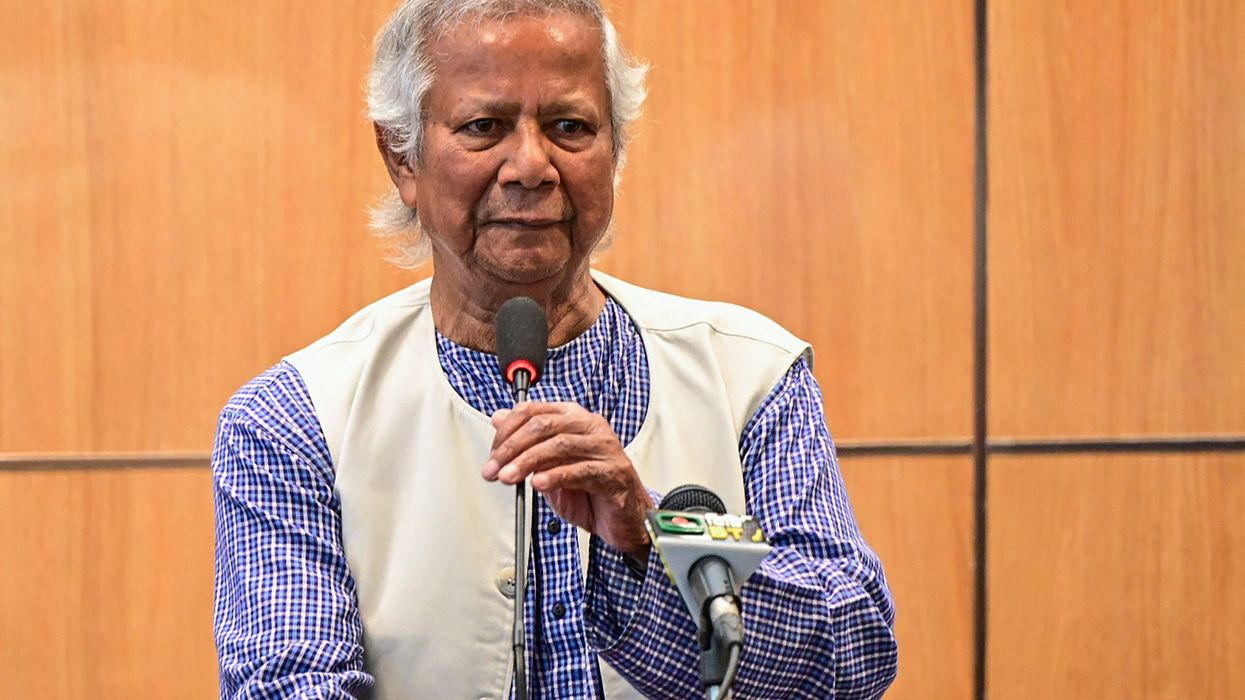NOBEL Peace Prize winner Muhammad Yunus returned to Bangladesh on Thursday to lead a caretaker government after a student-led uprising brought an end to Sheikh Hasina's 15-year rule.
Yunus arrived in Dhaka at around 2 pm local time (9 am UK time) on a flight from Paris via Dubai. He may be sworn in as the new head of the interim government by Thursday evening. The army chief has described this transition as the start of a "beautiful democratic process."
A week ago, the idea of Yunus, 84, working alongside military leaders seemed unlikely. At that time, security forces were using deadly force against protesters demanding Hasina's resignation. However, the military turned against Hasina over the weekend, forcing her to flee to India as widespread celebrations erupted across Bangladesh.
Following these events, the military agreed to the student leaders' demand that Yunus, who won the Nobel Prize in 2006 for his work in microfinance, should lead the interim government.
"I'm looking forward to going back home, seeing what's happening, and organizing ourselves to resolve the situation," Yunus told reporters in Paris before departing for Dhaka.
Legal issues and military support
Yunus had been abroad this year while on bail after receiving a six-month jail sentence, a conviction widely criticised as politically motivated. On Wednesday, a Dhaka court acquitted him of the charges.
Yunus has faced over 100 criminal cases and a campaign against him led by a state-backed Islamic organisation that accused him of promoting homosexuality. The judiciary, under Hasina's government, has been accused of supporting these actions.
Army chief General Waker-Uz-Zaman expressed support for Yunus and anticipated that he would be sworn in on Thursday evening to lead the interim government. "I am certain that he will be able to take us through a beautiful democratic process," Waker said.
Yunus indicated that he plans to hold elections "within a few months."
Public response and next steps
Details about the new government remain unclear, including the military's role. However, many Bangladeshis expressed hope for positive change at a rally in Dhaka organized by the former opposition Bangladesh National Party (BNP).
"I expect that a national government will be formed with everyone's consent in a fair way," said Moynul Islam Pintu.
On Monday, Hasina, who had ruled since 2009, stepped down as large crowds took to the streets in Dhaka. Some of the crowds later looted her palace. The unrest began over a month ago as protests against government job quotas but soon grew into a broader anti-Hasina movement.
Hasina had been accused of election fraud and human rights abuses. During the protests, security forces were deployed to suppress the demonstrators, resulting in at least 455 deaths, according to an AFP tally based on police, government officials, and hospital sources.
"The protests represent a significant moment in Bangladesh's history," said Thomas Kean, an analyst at the International Crisis Group. "The country was at risk of becoming a one-party state, but through peaceful protests led by young people, they managed to remove her from power."
Military actions
The military's decision to withdraw support from Hasina was crucial in her removal. The military has since met other demands from the student leaders.
On Tuesday, the president dissolved parliament, a key student and BNP demand. The police chief, blamed for leading the crackdown, was dismissed on the same day.
The new police chief, Mainul Islam, apologised for the actions of the police and promised a "fair and impartial investigation" into the deaths of "students, civilians, and police."
Former prime minister and BNP chairperson Khaleda Zia, 78, was released from house arrest, and some political prisoners were freed.
The military has also demoted generals seen as close to Hasina and removed Ziaul Ahsan, commander of the Rapid Action Battalion paramilitary force.
Police reported that mobs attacked officers and Hasina's allies, and freed over 500 inmates from a prison. Protesters also broke into parliament and vandalised TV stations, and destroyed statues of Hasina's father, Sheikh Mujibur Rahman.
However, since Tuesday, the streets of Dhaka have been mostly peaceful.
(With inputs from AFP)




